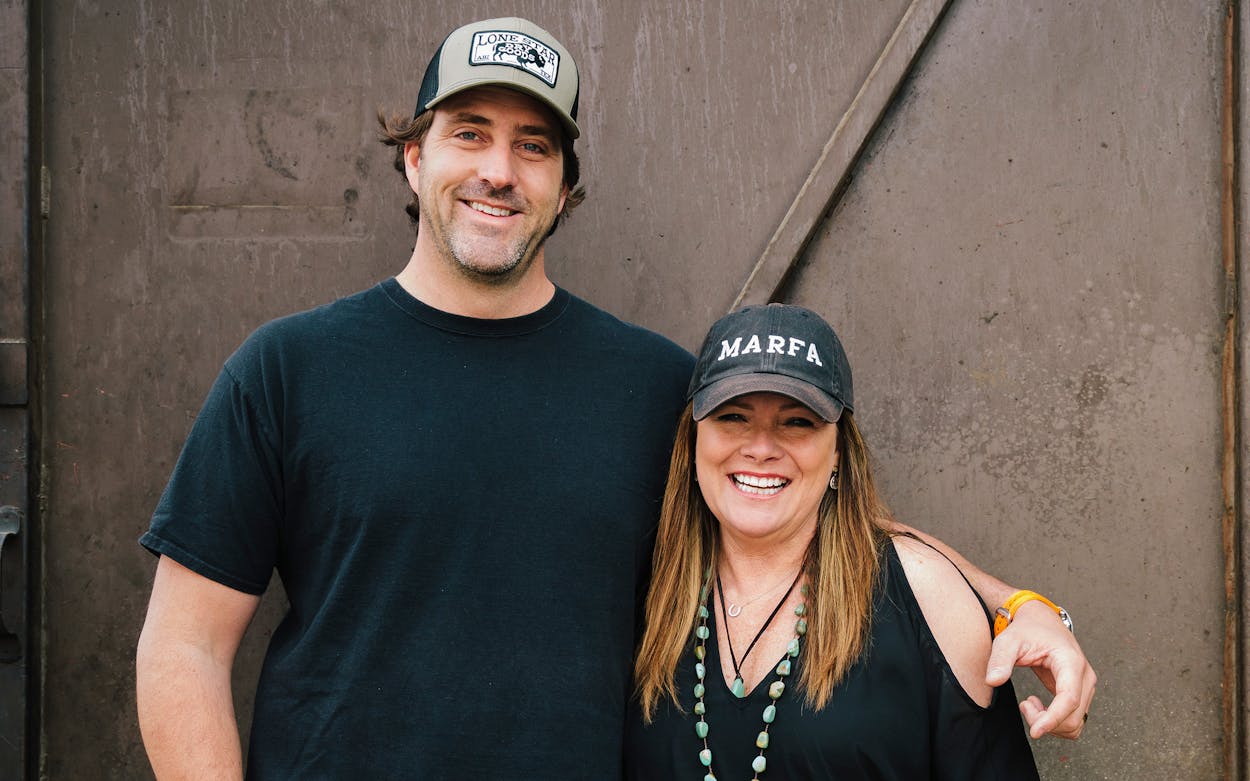The first customer of the day at Pecan Lodge in Dallas gets to ring the dinner bell hung above the ordering counter. It’s been a tradition at the restaurant since its early days at the Dallas Farmers Market. The last time the bell rang was Sunday, March 15, after which all Dallas restaurants switched to takeout only. Twelve days later, business was anything but good. Justin Fourton, who owns Pecan Lodge with his wife, Diane, told me via text then that revenue was down by 90 percent. The Fourtons dipped into their personal savings to cover payroll. At the same time, they were finalizing paperwork to launch the aptly named Dinner Bell Foundation.
Justin Fourton says he and Diane recognized that the pandemic’s economic effects were going to be far more severe than what government entities or other support networks were set up to respond to. With the catering side of its business wiped out, Pecan Lodge was uniquely positioned to help. “We had a tremendous amount of resources available to us,” Fourton says, including a dedicated catering facility with many freezers and coolers, as well as a fleet of delivery vehicles that would otherwise be sitting idle. The couple decided to start a delivery program with a twofold mission: offer affordable meals to health care workers and others on the front lines of the pandemic, while simultaneously helping struggling restaurants.
Pecan Lodge and five other Dallas restaurants provide meals prepared by their regular staff, and Pecan Lodge’s catering trucks deliver them to those in need. So far, that’s included hospital workers, nursing home staff, and firefighters. In the past week and a half they’ve served 5,000 meals, and on Friday alone they’re scheduled to deliver 2,300 more. “The demand is unlimited at this point,” Fourton says.
An online menu includes inexpensive food offerings from Maya’s Mediterranean, Monica’s Mex-Tex Cantina, SkinnyFats, and Luscher’s Red Hots. Restaurants are still joining, with Slow Bone BBQ being one recent addition. Each participating business prepares the food in its own kitchen with its own staff, while the foundation handles all the ordering and delivery logistics.
The point is to stave off restaurant closures and keep workers from having to apply for unemployment, something government efforts like the Paycheck Protection Program haven’t been very successful with so far. “That’s like 90 percent of the challenge right now, is just trying to keep your staff employed,” Fourton says, “because if you lose staff and especially key staff early, then you’re not going to be in a position to recover when things turn around.”
Organizations in need of meals can request assistance from the Dinner Bell Foundation through the foundation’s email, outreach@dinnerbelldallas.org. Supporters can also place orders for meals to be sent to any organization in need. There’s a minimum order of ten meals from any individual restaurant. The foundation is also seeking donations online. Through the month of April, dating website Match has offered to match all donations made to the Dinner Bell Foundation up to $15,000, and they haven’t yet reached that mark. “[Donations] would probably have the biggest impact for the next week or so,” Fourton says. For health reasons, the foundation isn’t able to accept offers of volunteer labor.
As for Pecan Lodge the restaurant, Fourton says the numbers look better now than in late March. He estimates they’re earning between 40 to 50 percent of their normal revenue, depending on the week. “As long as each week the sales are improving, then eventually we’ll get to where we need to be,” Fourton says. Customers can order by phone, in person on the patio through the side window, or for delivery through DoorDash. The barbecue menu has remained the same, but Fourton noted that beef rib sales have fallen sharply. Pecan Lodge is also now open seven days a week for both lunch and dinner. “Staying open those additional hours is allowing us to put more people to work, and to kinda spread those shifts out more,” Fourton says.
As for the future of the foundation, Fourton sees it as a model for what others could be doing around the country. Similar programs, such as San Francisco’s Buy Our Heroes Breakfast and the nationwide Operation BBQ Relief’s new Operation Restaurant Relief, have been successful in keeping some restaurants open and their workers employed. Fourton doesn’t expect the need for the Dinner Bell Foundation to subside anytime soon. “Everything is different,” he says, “and our view is that it’s going to be different for a while.”
- More About:
- Dallas








